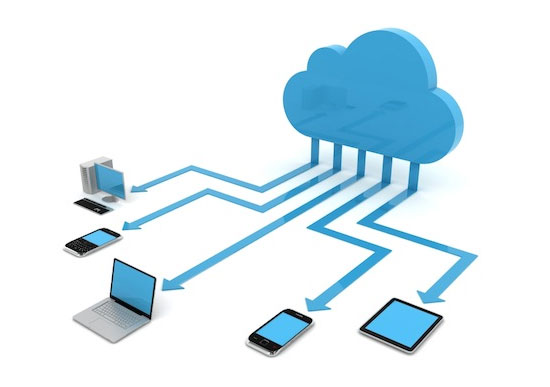An improbable 43% of all data breaches target small enterprises, which makes it more valuable than ever to defend your small business network from malicious traffic.
Real discussion?
Most of us know that firewalls are an important part of cybersecurity but don’t know how firewalls work or what they actually do.
Consider it or not, there are various types of firewalls, and each type contributes to different protections, benefits, and disadvantages. And taking the right type of firewall for your company size and type can make a large difference when it comes to your company’s online security.
Don’t bother—we’re here to help.
We’ve done a long dive into the domain of cybersecurity. We’ve figured out the business vernacular and sussed out the difference between packet filtering and application-layer inspection. And we’ve surfaced with a list of guidance specifically designed to support you obtain the perfect firewall solution for your company requirements.
The best types of firewalls for businesses
• Unified threat management (UTM): Best for large businesses
• Windows Defender or OS X Application Firewall: Best for solopreneurs
• Third-party software firewall: Best for individuals handling sensitive data
• Firewall & antivirus software: Best for small businesses
• Basic router: Best budget option
• Firewall router: Best for medium-sized businesses
• VPN router: Best for businesses with multiple locations
• Load balancer: Best for businesses hosting their own websites
Unified threat management (UTM): Most suitable for extended businesses
If you run a comprehensive, enterprise-level company house possibilities are you need a more complicated security resolution than a router or separate software. In that case, you may require holding centralized threat management (UTM) solution.
Each UTM product is different—some are physical devices, some are software, some are cloud-based, and some are a mixture of all three. Whatever the implementation system, though, all UTM solutions aim to contribute a one-stop-shop for all your security demands.
UTM solutions normally allow firewall, antivirus, VPN, and other intrusion exposure and prevention features in one place. That way, you get deep packet filtering for all web applications on all the devices on your Wi-Fi network, but it’s all managed in one place.
The exact cost of a UTM solution can vary dramatically depending on the provider you need, the dimension of your organization and the appropriate sequence of features your UTM adds. Some UTMs cost approximately the same as a third-party software firewall. But be provided for higher overall costs—you are running antivirus protection, VPN security, software firewalls, and hardware firewalls together into one solution, after all.The takeaway
Windows Defender or OS X Application Firewall: Best for SMB
Most characters don’t understand that their Windows or Mac computer now covers free firewall software. So if you’re an individual operating a small company on your own, you may previously have all the intrusion protection you need—no expensive third-party firewall necessary.
If you have a Windows computer, your operating system already includes Windows Defender— Microsoft’s free firewall software. Windows Defender is a stateful inspection firewall, so it explains both the TCP handshake and packet labels (more on those later) on every online exchange. It appears pre-enabled on your computer, so you don’t have to do anything to get started.
On Apple computers, you get the OS X Application Firewall— circuit-level gateway software that monitors TCP handshakes. While it enables you to set your own firewall rules, it doesn’t use packet filtering, which delivers it a bit less positive than the free Windows firewall. And it isn’t pre-enabled, so be certain to turn your firewall software on before connecting to the internet.
Keep in thought, too, that both Windows Defender and the OS X Application Firewall are software firewalls, so they can defend only your unique computer—hence the reason we recommend them for individuals, not for larger organizations. They’re also reasonably basic, so if you’re checking a lot of discernible data you may want to upgrade to a third-party software firewall.
Third-party software firewall: Best for individuals handling sensitive data
Third-party firewalls integrant the current firewall software on your computer. They deliver extra security features to help thwart would-be cybercriminals.
Every third-party firewall solution appears an unconventional combination of features, so you may have to do some shopping to find the right software for your demands. But features can insert an extra layer of deep packet inspection, anti-spam functions, data backup, and more—the opportunities are virtually endless.
We suggest this choice if you’re an exclusive handling sensitive data because it gives you added tools and protections to keep that data safe—while still being affordable and adaptable.
That being said, businesses with various employees may prefer a hardware firewall. Since a software firewall can defend only the devices the software is installed on, it doesn’t defend your entire network. Plus, you have to manually install and update the software on each device on your network (even mobile devices!). Depending on the software, you may also have to get separate licenses for each device, which gets pricey—especially recognizing how expensive many third-party firewalls are.
Don’t get us wrong, though—having a software firewall on your business devices is still necessary. If each device on your network has software firewall, your network’s still defended if one device is infiltrated. Software firewalls also enable your employees to work from their favorite coffeehouse and enjoy the same online security they get in the office. We’re just assuming that a complex, third-party software firewall may not work for huge organizations—at least not as your main cybersecurity solution.
Firewall and antivirus software: Best for small businesses
The more workers you have, the more reasonable it is that someone on your network will unwittingly install malware or download a computer virus. That’s why we think the best small-business firewall is a firewall antivirus software combo.
Firewalls that include antivirus software use deep packet inspection to recognize and reject files, messages, and other kinds of data that incorporate malware or viruses. Consequently, they have a greater record of interference detection than a proper firewall. And regularly, this sort of software acts as a web application firewall, so it holds you secure no matter which app you use to obtain the internet.
Keep in mind that this recommendation is still a software firewall, so it occurs with all the same disadvantages as a third-party software firewall. That said, we think that the added cost and inconvenience of installing and updating software on every employee’s device is worth it if you have more than several employees.
Basic router: Best budget option
If you’re moving a small business with various employees, chances are you’ve already spent in a basic Wi-Fi router so everyone in the office can compare to the internet at once. If so, you’ve now got primary firewall protection.
A Wi-Fi router is a large low-budget, small and medium business firewall solution because routers automatically block any external traffic that doesn’t meet the necessary security parameters (set by you, of course). That actually does your router a stateless firewall, monitoring TCP handshakes like a bouncer to make sure every incoming application is on “the list” for your internal network.
Of course, that means your router allows only least network security—hardly ideal if you’re handling a lot of sensitive data you don’t want to be compromised. In that case, you should reasonably upgrade to a firewall router or a third-party software firewall.
On the upside, though, a router is a hardware firewall, so it preserves all the devices on your network. That saves you money since you don’t have to obtain licenses for each employee’s computer. Plus, you can find basic routers for as little as $10 and you don’t have to spend precious business time updating, monitoring, and installing firewalls on per employee’s computer.
Firewall router: Best for medium-sized businesses
As your business increases, installing and managing firewall software per employee device becomes more and more impractical—at least as your primary form of network security. In that matter, a hardware firewall that preserves your whole network at once may be a better solution.
Enter firewall routers.
Firewall routers enhance the security you get with a primary router by adding more complicated firewall rules to adequately identify security threats. Some models allow stateful security firewalls, built-in antivirus software, application monitoring, and “parental” switches to block employees from accessing malicious sites which unsuitable for work.
All that means you get all the strength of a software firewall, but you can command all your settings and updates in one device. Plus, you get stability for every device connected to your Wi-Fi network—including mobile devices.
VPN router: Best for businesses with multiple locations
If your business is scattered across various offices or you have remote employees, you know how difficult it can be to keep everybody on the same page. Good news, though: with a VPN router, it becomes a lot more comfortable and expands your security.
Normally, your internal network is available only to devices on your internet connection. That means the devices have to be physically present in the same location to connect to each other for file sharing, printing, and other internal network purposes.
But with a virtual private network, you can increase your private, internal business network to other established devices and networks via VPN tunnels. These tunnels act as an added layer of data layering, filtering out attacks from hackers seeking to infiltrate your internal network connection.
VPN routers analyze the process. When each of your locations uses a VPN router, your routers can interact with each other, effectively connecting the internal networks of each office into one big private network.
In the end, that makes it easier to communicate and collaborate with your remote employees and offices while still enjoying a high level of cybersecurity company-wide.
Load balancer: Best for businesses hosting their own websites
If your company hosts websites on your own servers, you’ll reasonably require a load balancer in addition to your private network firewall solution.
When hosting websites, your servers require being external-facing—meaning the public can access the data stored on your servers. Otherwise, users won’t be capable to load your websites. But you also want to defend your servers from hackers and other malicious online items.
Fortunately, a load balancer can operate as an automatic firewall, much like a router for your internal network.
Load balancers classify incoming traffic across your servers. That way, no single server gets overwhelmed with simultaneous requests. Not only does load balancing begin your hosted websites load faster—but it can also protect your business from DDOS attacks.
If you’re already using load balancing, you may not require another firewall to defend your servers. Load balancers already monitor TCP handshakes and perform packet filtering functions to determine the most efficient method to share incoming requests. In other words, it previously acts as a stateful firewall and drops malicious incoming traffic.
In summing-up
The most suitable type of firewall for your enterprise depends on your requirements. If you’re running a small and medium business and don’t feel a lot of sensible data, a basic solution may be the simplest and most cost-effective solution.
Managing a small to medium-sized business or have increased security needs? You may want to spend on a third-party software firewall, antivirus and firewall combo, or a firewall router. If working with employees in various locations, a VPN router may be the way to go.
Larger companies, though, may require the stronger firewall security added with the UTM solution. And organizations that host websites will definitely want to protect their server with a load balancer.
Contact HEX64 today for Firewall Support Services.





Great content! Super high-quality! Keep it up! 🙂
Very informative and knowledge based content on Firewall. This blog really share a brighter aspect for Firewall support services for your business objectives. Thanks.
It¡¦s in point of fact a great and helpful piece of information. I am happy that you simply shared this useful information with us. Please keep us up to date like this. Thanks for sharing.
I’m very satisfied to see your article. Thank you a lot and i’m having a look ahead to contact you. Will you kindly drop me a e-mail?